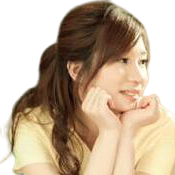
Pride parade in Copenhagen, 2021
我們可能都聽過有人根據所謂的 gaydar說,哦,他看起來很gay!或是在媒體上,尤其是在同志遊行時,看到某種被刻意凸顯的奇裝異服形象,放大那些「與眾不同」的部分。不管是讓人感覺「酷兒很奇怪……」還是「酷兒很酷!」 這似乎都有意無意地又強化了某些刻板印象:酷兒們穿衣用色大膽、有藝術氣質、愛表演等等。 實際上,網路上甚至有文章有關如何讓人看起來更像同志,或是更像非二元性別者。
這些形象確實打破了長久存在的二元性別刻板印象,讓更多表達方式有存在的空間,但這些形象目前只被刻意營造在酷兒們身上,加上相對接近大眾認知的二元性別形象的酷兒們也大多被忽略,我偶爾會想,這樣的另一種刻板印象,會不會反過來給那些看起來「無聊」或是「不夠奇怪」的酷兒們另類的壓力?
The "queer look" concept has occupied my thoughts for quite some time. You might have heard someone say, "oh, he looks very gay!", perhaps based on a "gaydar," the ability to sense someone's sexual orientation through their behavior or attire. You might have also noticed a peculiar pattern in the media, where they often highlight nonstandard appearances during pride parades to throw you an immediate impression of the theme.
Regardless of whether it’s a “queer are weird …” or “queer are cool!” impression one might take, it seems that media has been trying to reinforce certain stereotypes. They tend to portray queerness as synonymous with style, artistic flair, and expressive gestures. To some extent, it becomes a narrative of "queer are stylish, artistic, and flamboyant." You can even find online articles offering various tips on how to achieve a specific gay, lesbian, or non-binary look. While it may seem empowering at first, it also raises concerns about perpetuating yet another stereotype within the queer community.
On the one hand, I firmly believe that individuals should never feel pressured to conform to any stereotype in order to gain acceptance in society. However, I can't help but wonder if there's a risk of unintentionally alienating queer individuals who don't fit into these commonly portrayed traits. This fear of being labeled as "boring" or "not queer enough" might, again, result in feelings of exclusion or inadequacy within the community.





















